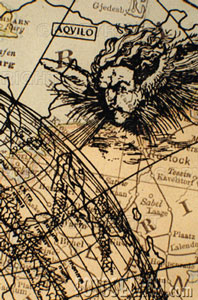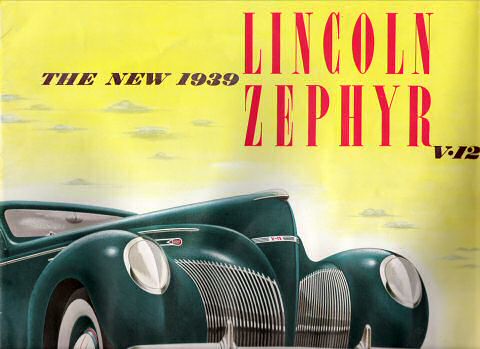What bright light at Ford came up with this idea? Somebody who considers himself real cool, very likely. Someone who's downgraded brains to make room for more coolness. If you want one nearly infallible sign of a failing corporation, look for one that tosses aside names for its products that have an imaginative resonance for people in favor of meaningless alphanumeric designations or made-up neologisms.
Probably many a business school student is writing a paper decrying acts like Ford's as symbolic of what's wrong with our corporate leviathans. They will argue that renaming a product is a bad substitute for improving it: true, but the implication is that the name is irrelevant. Names are never irrelevant, however. A name is the first impression you get about a person, a car, a place — anything. It colors your attitude to the thing named.
So the people who mattered at Ford actually understood this truth better, in principle, than their critics. They decided that MKZ would be a more attractive name.

Zephyr. The gentle west wind, a much more benign character than Boreas, the north wind who loves to put the boot in. Full of associations for poets, lit'ry types, and art lovers. Botticelli painted him in Primavera. Shelley wrote his "Ode to the West Wind":
The rail enthusiasts' favorite train in the United States is the historic California Zephyr; would they be as lyrical over it if it had been called the California CVS? For that matter, the Lincoln Zephyr, a name that was introduced long ago, has its own mystique for some car buffs.

The Vice President for Cool Nomenclature at Ford might have thought that in our unpoetic, high-tech age, "Zephyr" doesn't register anymore. If he or she had Googled it, though, more than a few contemporary and even tech businesses named "Zephyr" would have popped up. Clearly it still sings to some minds.
Why do companies shoot themselves in the foot like this — convince themselves that their customers are soulless circuit boards? Why do they abandon venerable names and logos that many people are fond of, and replace them with machine language?
Why not scupper "Lincoln" while they were about it? "Listen, Henry XXII, I've been meaning to talk to you about this 'Lincoln' thing. I know it's got sentimental points with your family and all, but I mean really, what does it say to our 25- to 49-year-old Gold Card cohort today? Some Revolutionary War dude with a tall hat? Listen, I've focus grouped the name 'Britney' — yes, I know all about the buy-out costs, but wait'll you see the name recognition scores."
Do dreamers of dreams see themselves behind the wheel of a spitting-new Britney G2VSD4? Either there are no longer dreamers, or our edge-of-the-edge marketing managers no longer know how to speak to them.
Why do companies shoot themselves in the foot like this — convince themselves that their customers are soulless circuit boards? Why do they abandon venerable names and logos that many people are fond of, and replace them with machine language?
Why not scupper "Lincoln" while they were about it? "Listen, Henry XXII, I've been meaning to talk to you about this 'Lincoln' thing. I know it's got sentimental points with your family and all, but I mean really, what does it say to our 25- to 49-year-old Gold Card cohort today? Some Revolutionary War dude with a tall hat? Listen, I've focus grouped the name 'Britney' — yes, I know all about the buy-out costs, but wait'll you see the name recognition scores."
Do dreamers of dreams see themselves behind the wheel of a spitting-new Britney G2VSD4? Either there are no longer dreamers, or our edge-of-the-edge marketing managers no longer know how to speak to them.

1 comment:
Companies sometimes change their names from meaningful phrases to letter combinations when they are trying to forget where they came from...as in US Steel changing to USX, or Pennsylvania Railroad to Penn Central. In the case of the specific car model, I'm guessing that there are frustrated brand managers who have little ability to impact most of the things that influence their success (design features, dealer channel configuration) so they mess around with the things they do control more directly, like product names.
Post a Comment